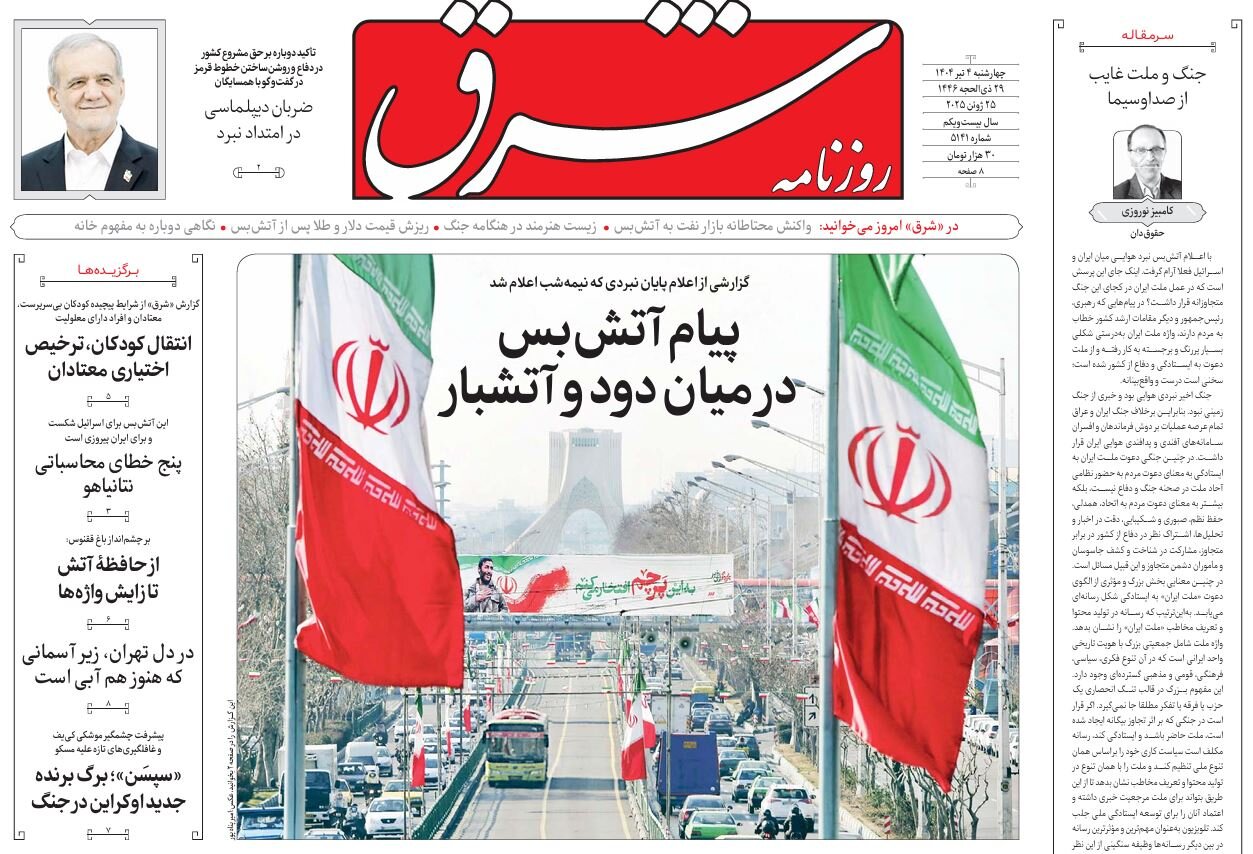Grossi’s contradictory position and silence in face of attack on nuclear sites

TEHRAN - In an analysis, Shargh examined the dual behavior of the UN’s nuclear monitoring body and its chief Rafael Grossi regarding Iran’s nuclear program and the attack on Iran’s nuclear facilities.
It wrote: The contradictions in positions of Rafael Grossi, director of the International Atomic Energy Agency, have once again raised serious questions about the neutrality of this organization. While his report laid the groundwork for a resolution against Iran and even an Israeli military attack on Iran, just a few days later he emphasized that there is no evidence of a nuclear weapons program in Iran. These contradictions have shifted the role of the Agency as a technical supervisory body to a political functionary. If Grossi did not want to favor any party, it was his legal and moral duty to show a clear reaction against the attack on the nuclear facilities monitored by the Agency, in line with international procedures. He only stated that the attack was "dangerous" but refused to condemn it. Whether the Agency wants it or not, it is not only a supervisor but also an institution whose director general’s words can have security repercussions. If the director of the Agency cannot distinguish between technical warnings and political authorization, how can we expect him to safeguard the fragile non-proliferation regime?
Sobh-e-No: Iran and a strategic deterrence initiative
Recent developments in West Asia are not only analyzable as a military confrontation between Iran and the Israeli regime but also indicate a shift in Iran’s security doctrine from passive deterrence to active and offensive deterrence. In recent days, Iran has moved beyond the "strategic patience" strategy to attack the enemy’s interests and has shown that it is seriously pursuing a "strategic punishment" approach. Unlike the past, when Iran merely responded to the Zionist aggression, now we see the emergence of a smart offensive strategy with coordinated security, military, and psychological measures. This event is not the end of the story but the beginning of a new phase of dynamic deterrence in the region—potentially serving as a model for other independent countries facing global hegemony. It could also create new developments in security architecture elsewhere, from Latin America to Southeast Asia.
Etemad: People are the largest support
Etemaad in an interview with Gholamhossein Karbaschi, a reformist political activist, called the people the greatest asset for the establishment in these difficult days. He said: There is an undeniable reality about Iran: the greatest and most important backbone of the system and governing structure are the people. Essentially, when the society is united there is a national consensus, and people support government and its decisions. In that situation, people are the best deterrence against hostile regimes or countries and entities with malicious intentions. They are the main bulwark against aggression. History has also shown that as long as negative propaganda does not cause domestic challenges, enemies and malicious actors do not think of invasion, hostile actions, or creating problems for Iran. The main support for this system is the national consensus that has existed since the inception of the revolution. If the national unity is weakened, enemies’ greed to attack Iran’s interests increases, and whenever this unity and consensus strengthen, enemies retreat more.
Arman-e-Melli: Behind closed doors
In a commentary, Arman-e-Melli discussed Foreign Minister Abbas Araghchi’s trip to Russia and wrote: In the current circumstances where both Iran and Russia are in a state of war and share a common enemy, this visit is highly significant. Likely, the main purpose behind the visit is to buy Russia military equipment and even technologies to counter the Israeli war against Iran. It also seems that Russia could possibly provide Iran with intelligence (to (counter the U.S.-backed Israeli war on Iran). Before launching an attack on Iran, Putin had expressed readiness to play a diplomatic role between Tehran and Washington in discussions with Trump. Therefore, although Tehran has closed the path of negotiation due to American disloyalty, if diplomatic channels open someday, Putin could play an important role between Iran and the U.S. The silence regarding the content of the discussions and the consultations that Araghchi had suggests that Tehran emphasizes Moscow’s key role in international dealings.
Leave a Comment